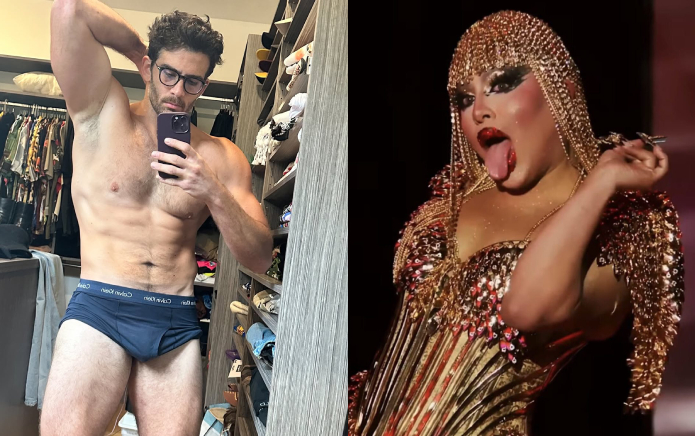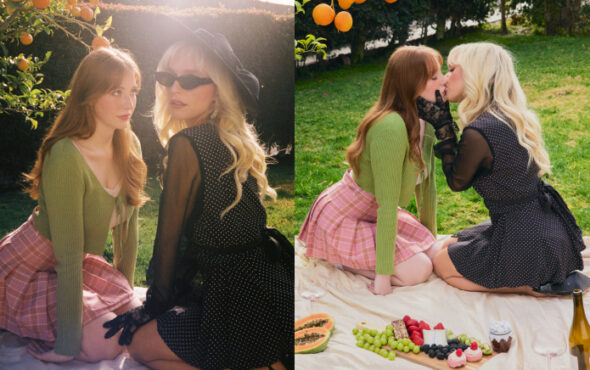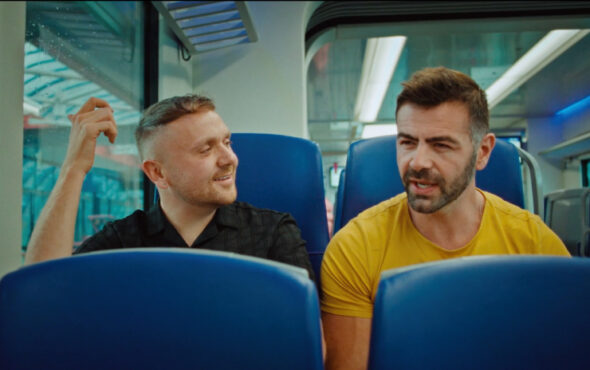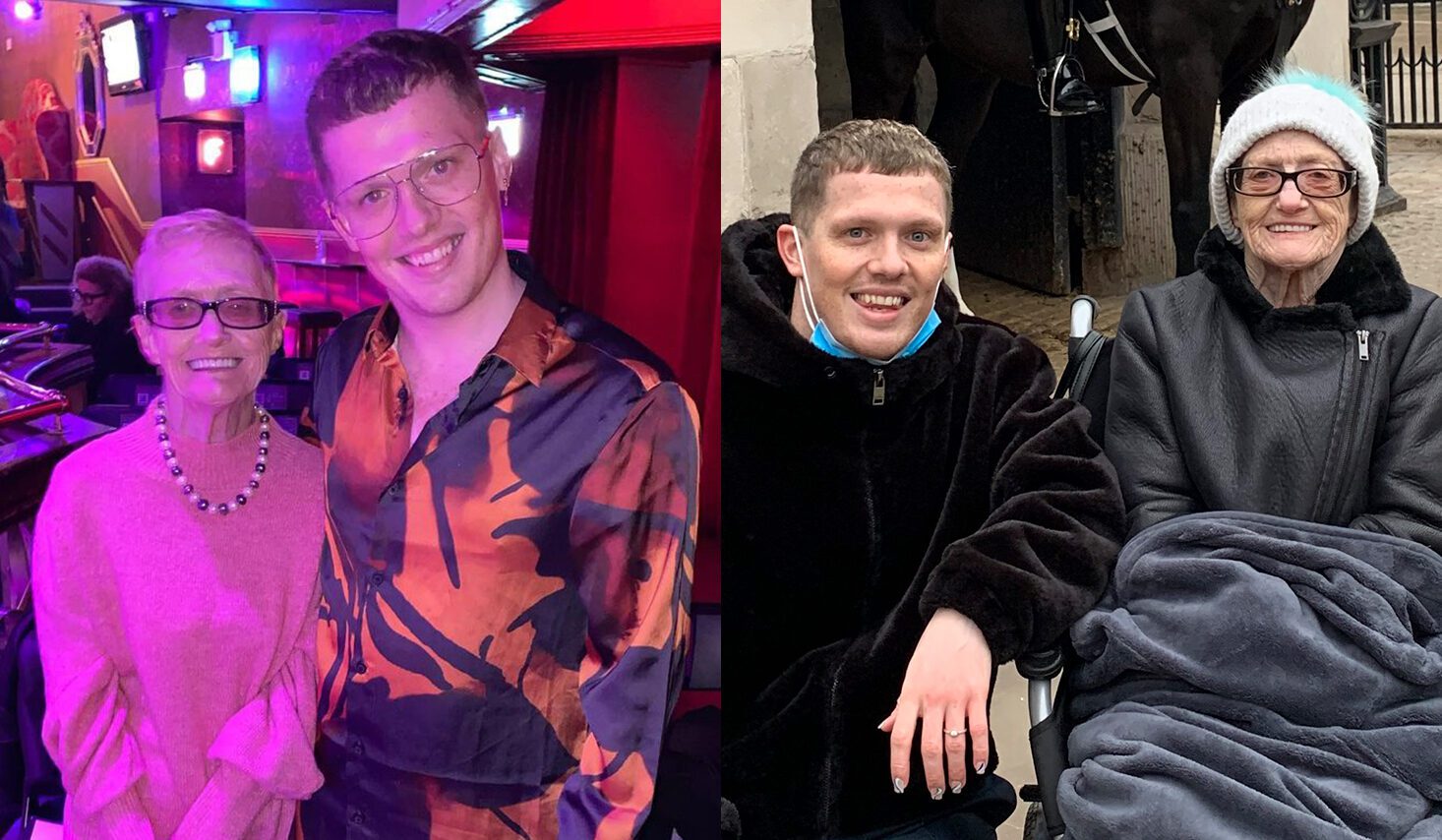
“I feel like people think that because they’ve got the disability, they think they’re not there in the brain, they’re like a child, or they don’t understand – but they do,” explains Julian Riley, known by many as Elektra Fence from the third season of Drag Race UK. Both of his parents have cerebral palsy, a condition which the NHS says is “caused by a problem with the brain that develops before, during or soon after birth.” Symptoms of it vary significantly from person to person, though Julian states that for his mother, it mainly affects her speech and ability to move around. “When she was born back in 1950, the doctors told my grandma that she’ll be nothing and they might as well just lock her up and throw away the key because she had cerebral palsy,” he tells GAY TIMES. 72 years later, however, she has “proven those doctors wrong” and Julian says he could not be more proud of her.
Throughout his lifetime, the 30-year-old can recall countless incidences of people looking down on, or discriminating against, his parents. “People speak so badly to disabled people,” Julian says, detailing one of the most common experiences he has when out with his mother: “I’d be about 12 or something and my mum would take me to the shops or the bank and the person behind the desk would be like, ‘Is she okay? Does she need help? What’s wrong with her?’ because even my mum, she was like 40-years-old [and they would ask] ‘Is this your great grandma?’ No, it’s my mum.” He says that people “speak to her like a child”, even now. When he was at school, students “would pick on” Julian “and say these nasty comments” about his parents. “Things wouldn’t bother me now as they did then,” he explains. “I think if I could wish one thing on other people, just be patient. Maybe the ones without disabilities are the different ones. Who says people without disabilities are more superior than people with disabilities, you know?”
Julian adds that his parents’ lives would have been made a lot easier if venues and establishments were made more accessible for those with disabilities. He remembers a time that he took his mum to a popular tourist destination in London, though they “had to get off at a station that was miles away because there was no way of getting out” for someone in a wheelchair, which his mother sometimes requires to get around.
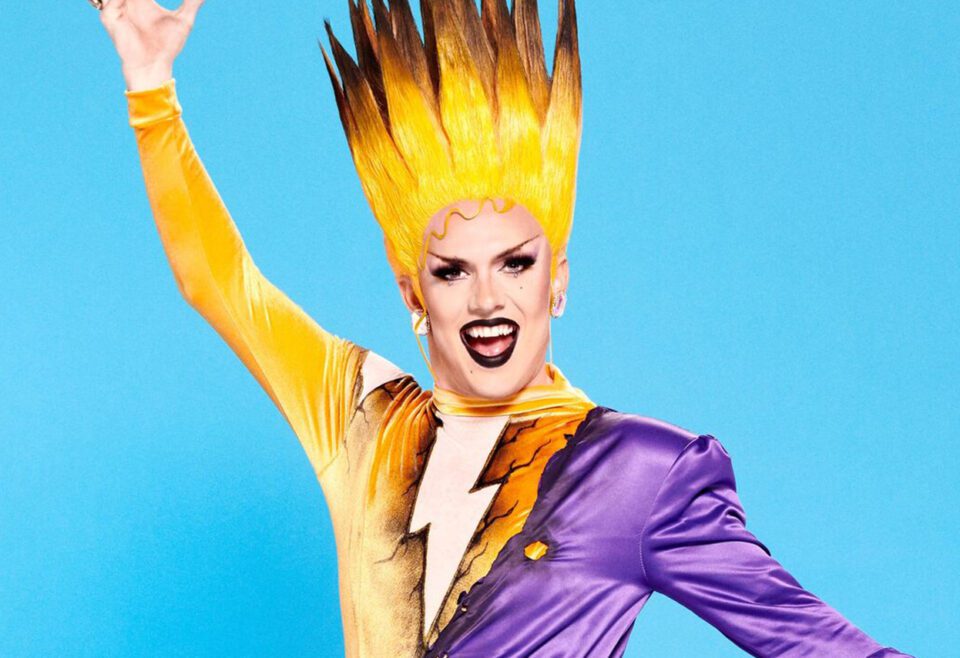
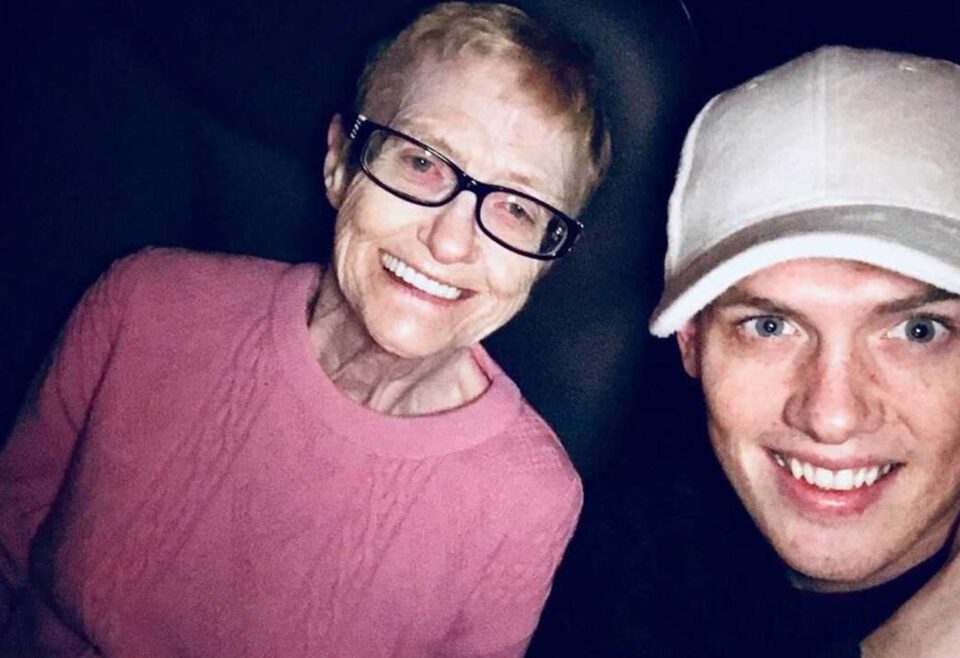
His mother recently accompanied him to Victoria Scone’s show at The Clapham Grand, which he says “couldn’t have been any more amazing” at making sure she was comfortable. “My sisters, they were there as well – Anubis, Ella, Kitty, Vanity, Victoria – they all came down to say hi to my mum, they gave her a hug,” Julian remembers. “They didn’t speak to her like she was anything different…that just filled my heart with so much love and joy that these people that I did this competition with, who are my really good friends now, spoke to her and accepted her into their life.”
“With Drag Race, I am so grateful for it, for where it’s got me and how it’s like, propelled me,” Julian says, explaining the importance of raising awareness around things such as cerebral palsy. He continues: “I want to bring light to these things and that’s, I think, with the platform we’ve been given, what we need to do. As well as doing gigs, as well as making money, because we’ve got to eat, we’ve got to live, you know? But I think it’s good that we do bring light to these things and do talk about disabilities, and do talk about things like that and not just let it be a story on the show.” Seeing the difference that using his voice has made has been one of the most rewarding things about appearing on Drag Race UK. “Drag is all about fun, comedy, laughter, bringing light to people’s lives and I feel like talking about issues like this and disabilities and stuff like that…that’s what we should do with our platforms, not just look good in an Instagram picture.”
Julian’s advice for those with disabled parents is to not “let anyone tell them that they can’t be something” and to always “stick up for them” when they need it. “I’ve got the best parents because they have brought me up and they have, from being told from day one that they will be nothing, I’m doing this for them,” he adds. “I just think they’re incredible. And I’m so grateful that I’ve got two disabled parents because I wouldn’t change it for the world.”
Scope UK is a disability equality charity in England and Wales which campaigns for a fairer society and provides practical information and emotional support for those who need it. More information about it can be found by clicking here.
